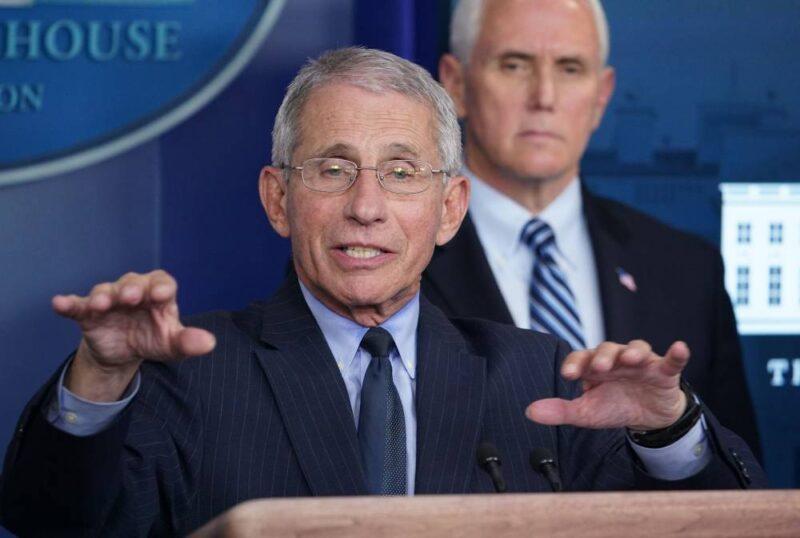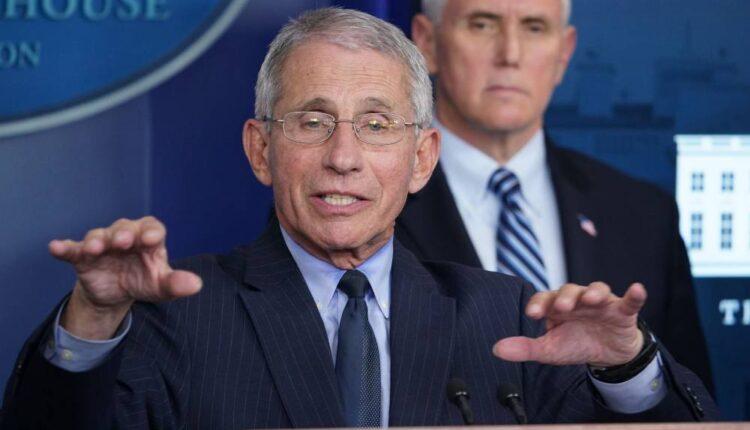
- COVID-19 has spread to almost every country in the world, killing more than 74,000.
- The worst outbreak is in the U.S. where there are more than 362,000 cases and at least 10,781 deaths.
- White House officials have predicted up to 240,000 people in the U.S. will die from COVID-19 with a bulk of those deaths peaking over the next several weeks.
Director of the National Institute of Allergy and Infectious Diseases Anthony Fauci speaks during the daily briefing on the novel coronavirus, COVID-19, in the Brady Briefing Room at the White House on April 1, 2020, in Washington, DC.Mandel Ngan | AFP | Getty Images
The world may never get back to what it considered "normal" before the coronavirus emerged from Wuhan, China a little over three months ago and spread to more than 1.3 million people across the world, U.S. health advisor Dr. Anthony Fauci said at a White House press briefing Monday.
Gradually, we'll be able to "function as a society. But you're absolutely right, if you want to get to pre-coronavirus, that might not ever happen in the sense that the threat is there."
Fauci said a number therapies are in the pipeline and several potential vaccines are in the works, giving him faith "that we will never have to get back to where we are right now."
VIDEO6:0606:06Gottlieb: We need a therapeutic by August because the virus could be back in fallCoronavirus
Even when a vaccine is developed, he said things may never return to what was considered normal before the virus, because it will always be a looming threat in society. He previously said that the virus will likely come back every year, especially without a vaccine to prevent future outbreaks. However, he said Monday that he's hoping scientists will develop therapeutic drugs and a workable vaccine in the meantime that will help contain the virus better than it is today.
"When we say 'getting back to normal' we mean something very different from what we're going through right now, because right now we are in a very intense mitigation," Fauci said. "If 'back to normal' means acting like there never was a coronavirus problem, I don't think that's going to happen until we do have a situation where you can completely protect the population" with a vaccine, he said.
COVID-19 has spread to almost every country in the world, killing more than 74,000. The worst outbreak is in the U.S. where there are more than 362,000 cases and at least 10,781 deaths.
The U.S. is no longer trying to contain the virus. State and federal officials are trying to mitigate the damage wrought by COVID-19 as it tears through the nation. The U.S. is also working on antibody testing that would determine whether someone was exposed to the virus and had the antibodies to fight it. That would also tell health officials how far it actually spread.
"Ultimately, the show stopper will obviously be a vaccine," Fauci said.
White House officials have predicted between 100,000 to as many as 240,000 people in the U.S. will die from COVID-19, with a bulk of those deaths peaking over the next several weeks.
VIDEO8:3808:38Watch a timeline of disease expert Dr. Anthony Fauci's comments on coronavirusCNBC Digital Original Video
"Dr. Fauci and I both strongly believe that if we work as hard as we can over the next few weeks, that we will see potential to go under the numbers that were predicted by the models," said Dr. Deborah Birx, who sits on the president's coronavirus task force with Fauci.
Vice President Mike Pence said mitigation efforts in Washington state and California appear to be helping to slow the spread of the outbreak in those states.
Fauci said he doesn't accept the death projections.
"I think we can really bring that down no matter what a model says," he said.
While the coming days in the nation's coronavirus fight look bleak, President Donald Trump said "there's tremendous light at the end of the tunnel."
"Currently, ten different therapeutic agents are in active trials and some are looking incredibly successful," he said. "But they have to go through a process and it's going to be a quick process based on what the FDA told me." He said another 15 potential treatments are working toward clinical trials, "so they're advancing rapidly."
Source: cnbc.com

